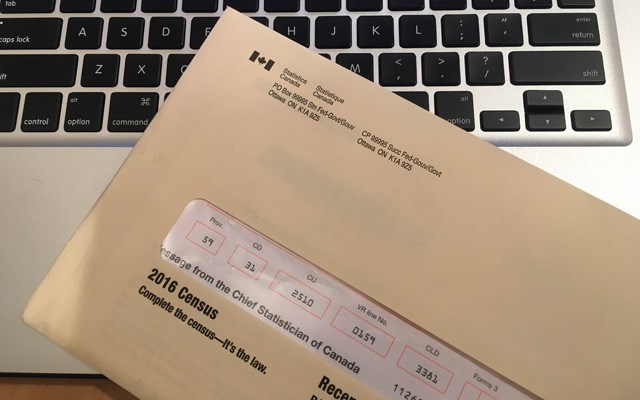It's amazing to imagine how much of our world is governed by statistics.
Almost everything can be distilled down to some sort of number — Big Data is simply becoming part of life in today's world.
The importance of shared data information can't be overstated when it comes to sources like the census, which we have all been taking part in this week.
The results inform spending on things as diverse as bus scheduling and mental health. It supports evidence-based action as opposed to action based just on political policy.
"This is the foundational piece for evidence-based policy in government, as well as supporting provincial, municipal and private sector, in designing policy and programs grounded in reality and not ideology," said Emmanuelle Tremblay, president of The Canadian Association of Professional Employees (CAPE), which represents 1,800 of the economists and analysts at Statistics Canada that strongly lobbied for the return of the long-form census recently.
And, of course, the long-form census is back after a decade following its reinstatement by the Liberal government. It will be mailed to one in four homes this time around and, as we all know, the census must be completed — it's the law.
Billions of dollars flow from Ottawa to the territories and provinces based on the census, so if people don't fill it out that impacts transfer payments.
We read recently the pleas from the leaders of the city of Prince Albert, Sask. who suspect that they lost about $5 million after the 2011 voluntary census was skipped by over 3,600 people. (You may recall the long-form census was replaced by Stephen Harper's government with the voluntary National Household Survey [NHS]. The mandatory 2006 survey registered a 93.5-per-cent response rate. That fell to 77 per cent when participation was made voluntary.)
"We have to get out there and we have to emphasize to people how many hundreds of thousands of dollars we lose," Mayor Greg Dionne told the Prince Albert Daily Herald, clarifying that it's up to residents to fix the problem.
Closer to home data from the 2011 census for Pemberton and some surrounding areas was suppressed because of data quality issues, or confidentiality, because too few people filled out the voluntary long-form NHS in 2011. In fact, Statistics Canada did not publish community-level data from the 2011 long-form survey for approximately 1,100 communities because of unacceptably low response rates. This is in comparison to fewer than 160 communities where data were not released as a result of data quality issues in 2006.
As we saw in Prince Albert this can have direct impacts on funding.
Like everything around us the census is not a static event. Gone are the days of census enumerators going door to door to get information about households. This week we are all logging in online and filling out the information, though of course you can still mail in your results.
New as well is the fact that this census will not collect income data, which will instead be retrieved from personal income tax and benefits files.
We are seeing this more and more globally as nations use other sets of Big Data to inform their statistics: population registers, health insurance information, social insurance numbers, tax records, and even municipal statistics such as water consumption to create highly accurate information.
In some ways this is superior to our census, as government must rely on the fact that those filling out the census are telling the truth. And there is also the reality that Big Data is constantly updated so the statistics don't get out of date the same way that census data does.
Gregory Mason, an associate economics professor at the University of Manitoba, sees a brave new world in his article in the Winnipeg Free Press.
"The Internet of things will collect the routine activity of the household without the awareness of occupants," he writes. "In the same way algorithms at Visa automatically record all my transactions, quickly interceding when it detects an anomalous purchase, so, too, does my water utility inquire when it detects I have supplied a meter reading that appears out of the ordinary...
"Big data, the Internet of things and changing sensibilities on privacy are transforming the census. In 10 or 15 years, we will look back on the way we currently collect census data as a quaint footnote in the history of official statistics, in the same way my grandchildren puzzle over the old rotary phone in my basement. The benefit will be a wider range of official statistics that are detailed, timely and less expensive to collect and compile."
The census is not a perfect pool — indeed many argue that it comes with privacy and confidentiality issues while others demand to see what actual good the statistics are used to support.
But the census does give us a glimpse into the cultural and social mosaic of the nation, and helps us to understand what Canada looks like, which makes it an important exercise for all to take part in.




